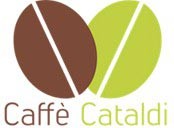No products
Prices are tax included
What about organic and fair trade?
In his search for products which evoke authenticity and craftmanship, Stéphane Cataldi realised that those which are the most genuine rarely needed to make such boasts. He sought little local saucissons in the mountains, cheeses direct from the farmer, and here was the proof: when a producer created something excellent, he had no trouble in selling it, without advertising: word of mouth was all that was necessary, the buyer came to him, and he could set his own price, to everyone's satisfaction. Furthermore, the local market of connoisseurs was often all he needed to sell all he could produce.
It soon became clear that the same phenomenon occurred with great coffees.
When the only goal was the quality of the coffee itself, a virtuous circle took place: a more qualified workforce (imperative for final quality), more rewarding work, a much better coffee, sold at good price ... and therefore higher wages, and in order to maintain quality, a commitment to building workforce loyalty through social initiatives: housing, schools, clinics etc... locally, on farms, since mobility can be difficult in what are mostly isolated and mountainous areas of production.
What about fair trade labels?
Paradoxically, subsidising production without asking for anything in return, leads producers to sell their best coffees on the open market (where prices are already fair, or even higher, depending on the quality), and to sell their mediocre coffee as fair trade (since the price will be greater than what the quality would normally allow for). The result? Producers who are not motivated to improve quality and therefore remain dependent on a charitable system, and consumers who, being disappointed with low quality at a higher cost, will eventually and naturally move away from fair trade coffees.
That is why there is no "fair trade" labelled coffee at Caffè Cataldi. Instead all coffees are "naturally" fairly traded based on a higher price for higher quality.
What about organic?
In order to get an excellent coffee, small producers know just how important balance is to their environment, not forcing the natural rhythms of the plantation in any way. The fauna, and the flora, all finds their own place, and the farm's production is often diversified. Some choose resolutely to only produce "organic" or even "biodynamic" certified crops, which is commendable. Whereas others also avoid chemical treatments, as they rarely help in terms of quality and can even be harmful. In the end, high quality "non-organic" labelled coffee will often be very close to "organic" coffee.
Based on these observations, Caffè Cataldi offers any coffee, as long as it is founded upon excellent quality.
The information relating to the coffee producing farms is often very detailed, because most buyers in the speciality market take these issues very seriously.
It is - alas - not possible to verify them all individually. But we will translate them fully, and remain on the lookout, because trust does not preclude vigilance.
